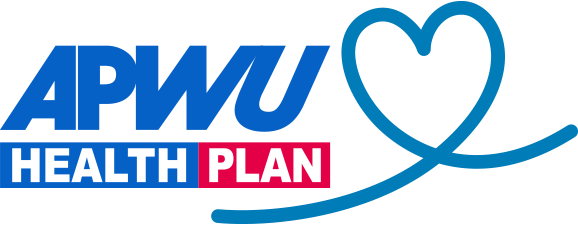When you’re pregnant, eating a healthy diet can help promote your baby’s growth and development. The food you eat is your baby’s main source of nutrition, so it’s important to make smart food choices and eat from a variety of food groups, including fruits and vegetables, breads and grains, protein, and dairy products.
If you haven’t done so already, visit your doctor or health care provider. Regular doctor visits are essential for pregnant people. Your doctor can monitor your baby’s development and help make sure both you and your baby get the food you need for a healthy pregnancy.
Get your own MyPlate Plan
The U.S. Department of Agriculture developed the MyPlate Plan to give you a better idea of what and how much to eat, based on your age, sex, height, weight, and physical activity level. This can be particularly helpful during pregnancy, when your nutritional needs change. Simply enter your information into the MyPlate Plan tool to see the foods and amounts of food that are right for you.
Making healthy choices in each food group
Here are some tips on choosing foods from each food group that have the vitamins and minerals you need for a healthy pregnancy:
Fruits and vegetables
Fruits and vegetables are rich in vitamins and minerals that help you feel healthy. They’re also a great source of fiber, which can help with digestion. Fresh fruits and veggies are your best option, but avoid raw or undercooked sprouts (like alfalfa, clover, mung bean, and radish) that may contain E. coli or salmonella.
If you use canned vegetables, look for low-sodium or no-salt-added varieties. Or rinse the veggies in water before eating them. Avoid fruit canned in syrup and choose fruit canned in 100% fruit juice or water. Drinking fruit juice is okay, but don’t overdo it. And, remember that unpasteurized cider and juice, even fresh-squeezed juice, can cause foodborne illness.
How to add more fruits and veggies to your diet:
- Top your breakfast cereal with banana slices.
- Add chopped spinach to pasta dishes and casseroles.
- Make a veggie pizza with mushrooms and red peppers.
- Snack on carrots dipped in hummus.
- Whip up a kale-and-strawberry smoothie.
- Make trail mix with a variety of dried fruits.
Grains
When you’re pregnant, you need a lot of energy, so it’s important to get your recommended amount of grains. Along with the carbohydrates your body needs, many whole-grain foods contain fiber, iron, and B vitamins. Folic acid can help protect your baby against serious birth defects, so choose cereals fortified with iron and folic acid.
Make smart choices when you eat grains:
- Ensure that at least half of your grains each day are whole grains.
- Trade sugary cereals for whole-grain cereals.
- Look for cereals fortified with iron and folic acid.
- Choose brown rice, wild rice, or barley instead of white rice.
- Buy whole-grain bread instead of white bread.
- Substitute whole-wheat pasta for regular pasta.
Proteins
Protein is crucial for your baby’s growth. Foods in this group include lean meats, poultry, fish, eggs, beans, and nuts, but when you’re pregnant you need to choose your proteins carefully. Only eat thoroughly cooked meat and poultry and avoid dishes that contain raw eggs. While fish is rich in omega-3 fatty acids—which can help promote your baby’s brain development—pregnant people need to make safe, healthy choices and avoid eating fish that’s potentially high in mercury. All seafood should be cooked to 145 °F, so pregnant people should avoid sushi and raw seafood.
If you want to sneak more protein into your diet, try these ideas:
- Snack on a piece of whole-wheat toast with peanut butter.
- Add roasted chickpeas to salads instead of croutons.
- Make scrambled eggs or an omelet for lunch (and add some veggies).
- Serve baked salmon or pan-seared scallops for dinner.
Dairy
The calcium in dairy products helps your baby build strong bones and teeth. It’s also essential for blood clotting and muscle and nerve function. Good sources of calcium include low-fat milk, cheese, yogurt, and puddings. Certain green vegetables, seafood, beans, and dried peas also contain calcium. If you have trouble digesting dairy products, try lactose-free products or calcium-fortified soy milk or orange juice. Of course, pregnant people should drink only pasteurized milk, so steer clear of soft cheeses like brie, which is often made with unpasteurized milk.
Ways to add more calcium to your diet:
- Add frozen fruit to yogurt for a healthy snack.
- Enjoy a glass of skim milk with dinner.
- If you have trouble digesting dairy, try calcium-fortified soy milk.
- Sprinkle low-fat shredded cheese over a garden salad.
Things to avoid for a healthier pregnancy
When it comes to healthy prenatal eating, it’s important to make smart choices:
- Limit calories from added sugars and saturated fats.
- Drink water instead of sugary beverages.
- Ask your doctor if you should limit your daily amount of caffeine.
- Don’t drink alcohol.
- Don’t diet to lose weight during your pregnancy.
- Educate yourself about food safety for you and your baby.
Prenatal vitamins
While vitamin and mineral supplements can’t replace a healthy diet, it’s easy to miss out on key nutrients when you’re pregnant, especially if you’re a vegetarian or follow a restricted diet. Always ask your doctor before you take any prenatal vitamins or special supplements during your pregnancy. If your doctor prescribes prenatal vitamins, be sure to follow the instructions. Taking extra vitamins could be harmful to your baby.
Multiple births
Finally, if you’re expecting twins or other multiples, you may need even more nutrients and calories. Ask your doctor about how much more to eat.



